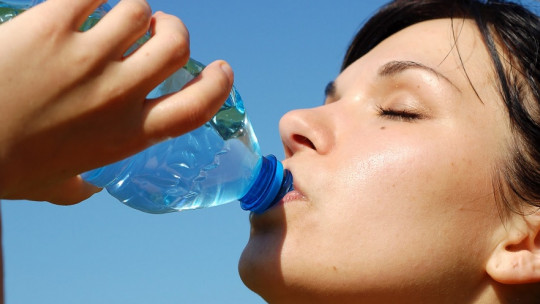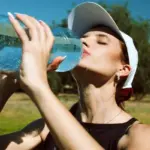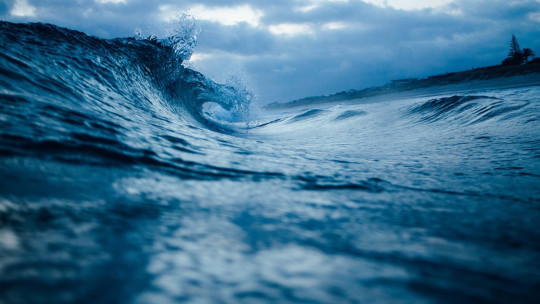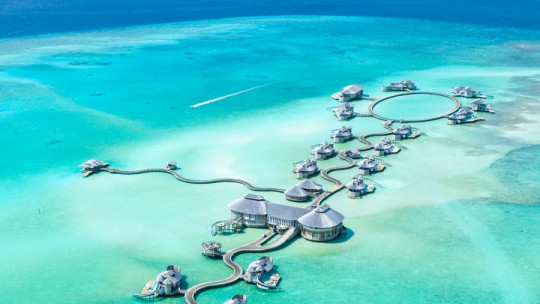Water is essential for the body and to be healthy It has usually been stated that we should be hydrated all day to make our body’s work easier and prevent problems such as constipation.
So, does that mean it’s healthy to drink large amounts of water each day? Where is the line between healthy and problematic? Do those people who do not separate themselves from the water bottle have a problem? Can water be harmful to our body?
In general terms, it has always been recommended to ingest between 1 and 2 liters of water per day for the proper functioning of the body, although this statement is subject to multiple factors that can vary the amount of desirable intake: metabolism, the amount of sport performed, the time of year, the life stage, the amount of vegetables and fruit eaten… In this article we are going to talk about potomania (also known as psychogenic polydipsia), what its causes are and its treatment.
What is potomania?
Potomania, also known as psychogenic polydipsia is the desire to drink large quantities of liquid, usually water, as a result of a mental or organic disorder.
It is an alteration that is reflected in compulsive acts, and is not governed by the physical sensation of thirst That is, the person with this syndrome will drink large amounts of water without being thirsty.
At a nosological level, potomania It is not included in any classification system of psychiatric disorders , but due to its characteristics it could be included within the DSM 5 heading “Unspecified eating or eating disorder” (APA, 2013). Other professionals advocate including it within impulse control disorders.
Symptoms
The potomania It is characterized by compulsive fluid intake which generates a feeling of relief and pleasure in the person.
Characteristic symptoms of food ingestion that cause clinically significant discomfort or impairment in social, occupational, or other important areas of the person’s functioning predominate. For example, feel clinically significant anxiety if they cannot quickly access fluid what do you want to drink. The desire to drink liquid governs the person, who cannot lead a normal life.
In the most severe cases, you can drink between 8 and 15 liters of water a day. When a person consumes more than 6 liters of water a day, they should consult a doctor immediately, even if no other symptoms appear to occur.
High anxiety coexists when they do not have access to the liquid they want to drink, sleeping problems, panic attacks and headaches
On the other hand, potomania It is often confused with dipsomania The latter is the irresistible tendency to abuse alcoholic beverages. It refers to an impulsive form of eating, related to external stressful elements, which generates very maladaptive behaviors.
Negative consequences of potomania on the body
What can happen to our body if we exceed our water intake systematically and over time? It is known that drinking more than 3 liters of water a day is no longer beneficial for the body, because can alter the balance between fluids and electrolytes
Some symptoms that indicate that our body is hyperhydrated are:
Psychological and organic causes
We must highlight the hypothalamus as the main organic cause. One of the functions of this region of the brain is to warn of a lack of fluid in the body through the thirst signal. An alteration in this brain structure could generate episodes of potomania. Another possible organic cause that must be taken into consideration is diabetes mellitus
However, experts say that the origins of this syndrome are mostly due to certain mental illnesses, delusional symptoms and eating disorders. Among the causes, stand out :
1. Psychotic disorders and dementias
Diseases such as schizophrenia, bipolar disorders, or Alzheimer’s can influence its appearance.
2. Anorexia
In these cases the person drinks large amounts of liquids with the aim of satiating without ingesting calories or to gain weight before undergoing a medical check-up.
3. Vigorexia and orthorexia
Their motivations would lie in distorted beliefs about the benefits of ingesting certain liquids.
4. Medications
It is also necessary to highlight the use of certain medications as causes, such as some anti-inflammatories, diuretics and lithium which interfere with kidney function.
Treatment
In this section we are going to explain the psychological treatment of this syndrome. It should be noted that in severe cases, psychological treatment must be accompanied by medical and/or pharmacological treatment to control hypnoatremia (low sodium level).
One of the great challenges for psychologists when treating this syndrome is that the person is not able to control the intense desire to drink water, so it is difficult for them to follow the guidelines and recommendations indicated to reduce intake. of liquid. In extreme cases, the clinician may be forced to reduce patient mobility to a specific area that lacks sources of liquids.
Fundamentally, the treatment of psychogenic polydipsia will be based on the restriction of fluid intake accompanied by the therapist (the patient must drink between 1L-1.5L of water every 24 hours) along with cognitive-behavioral techniques. Some of them are:









